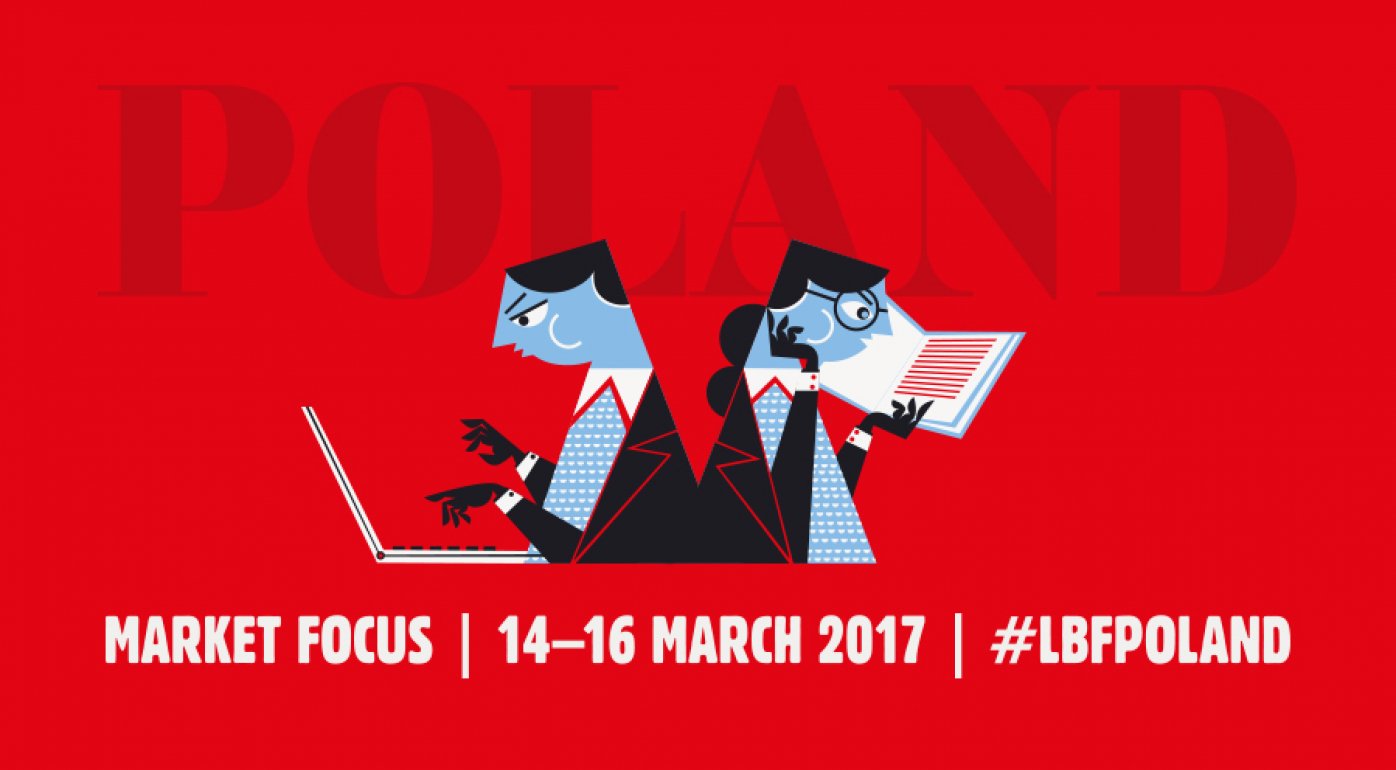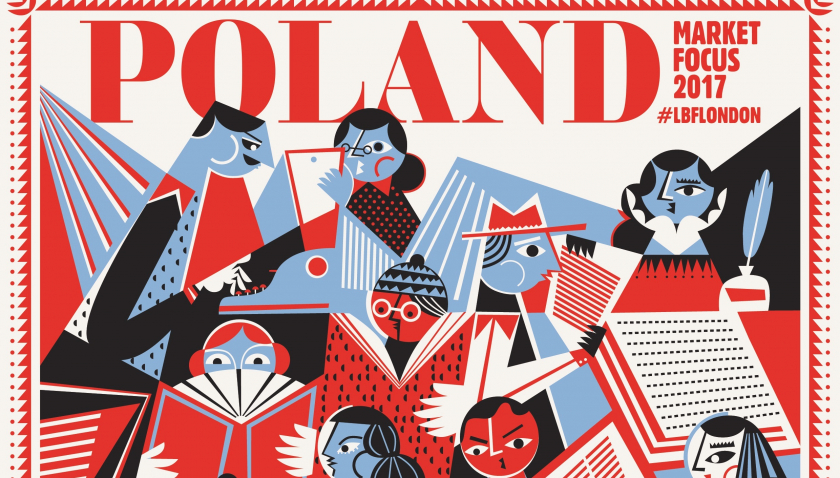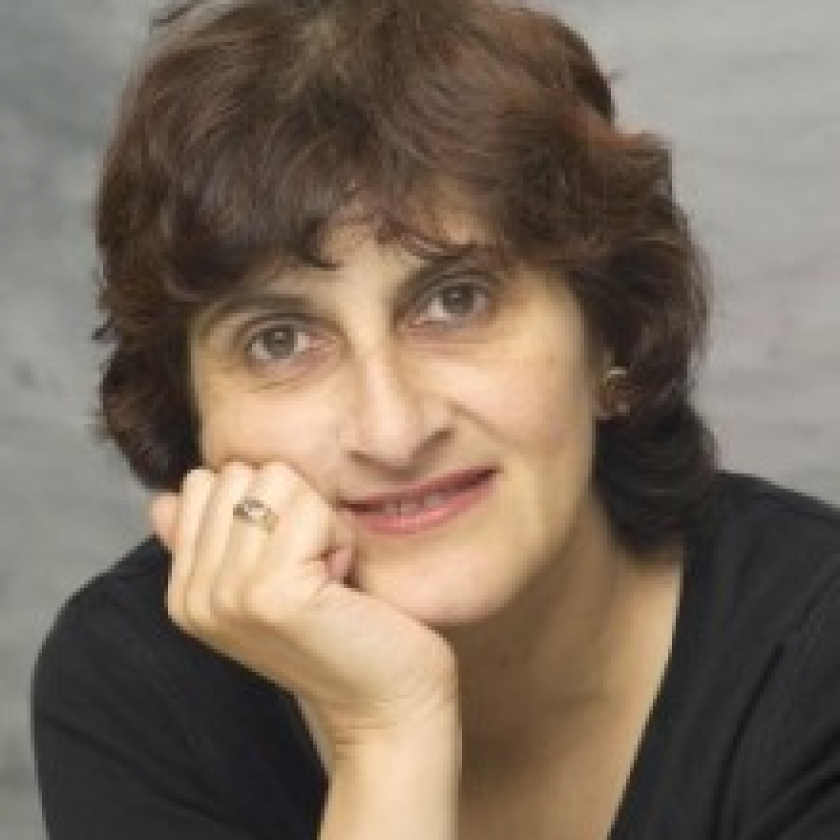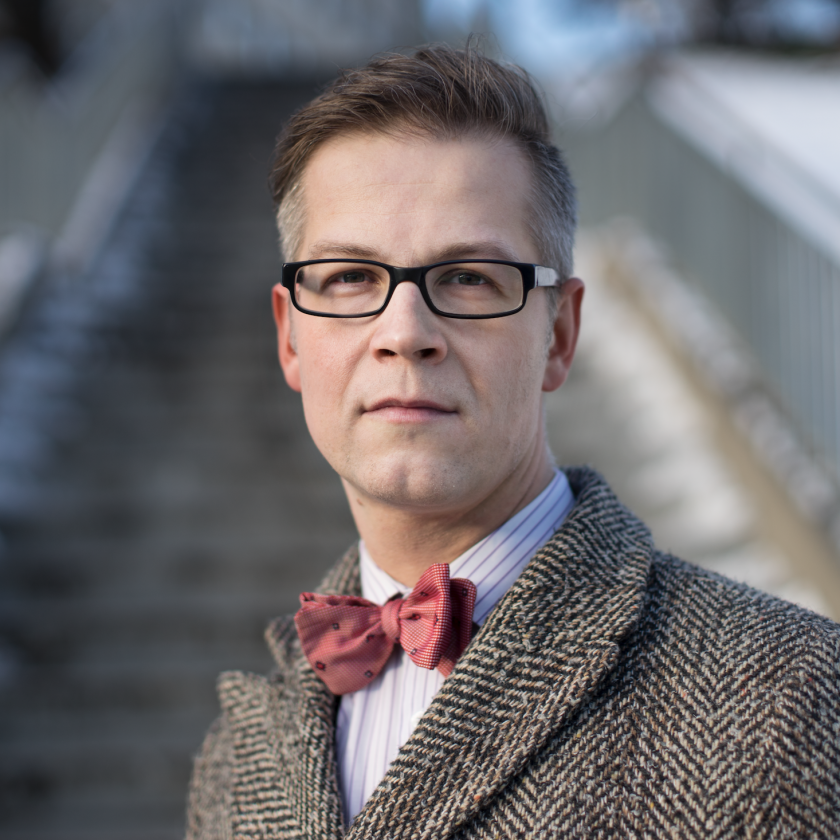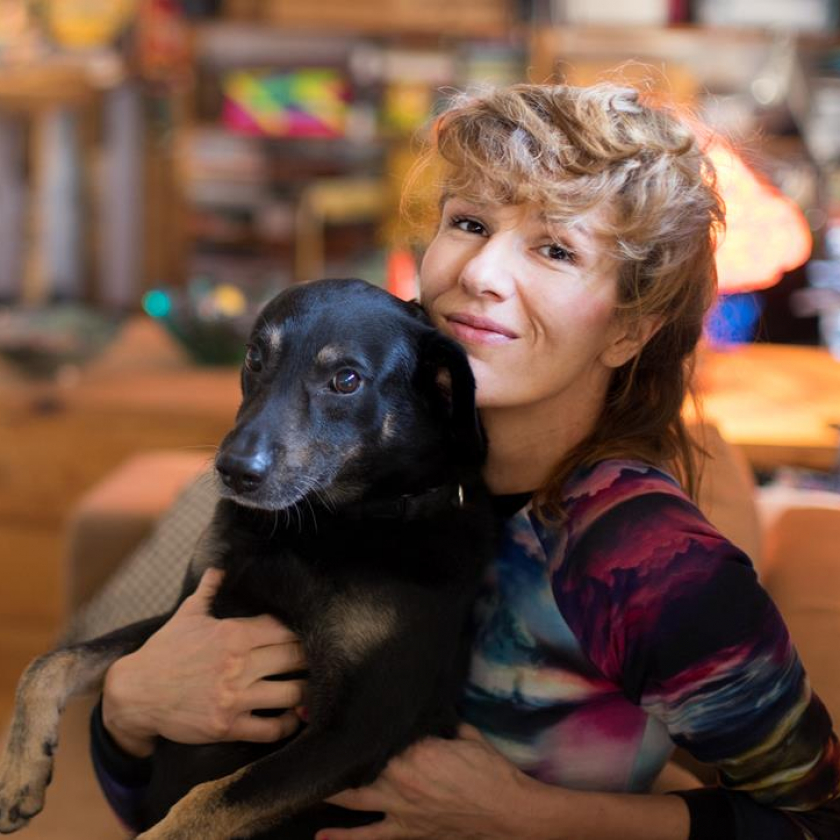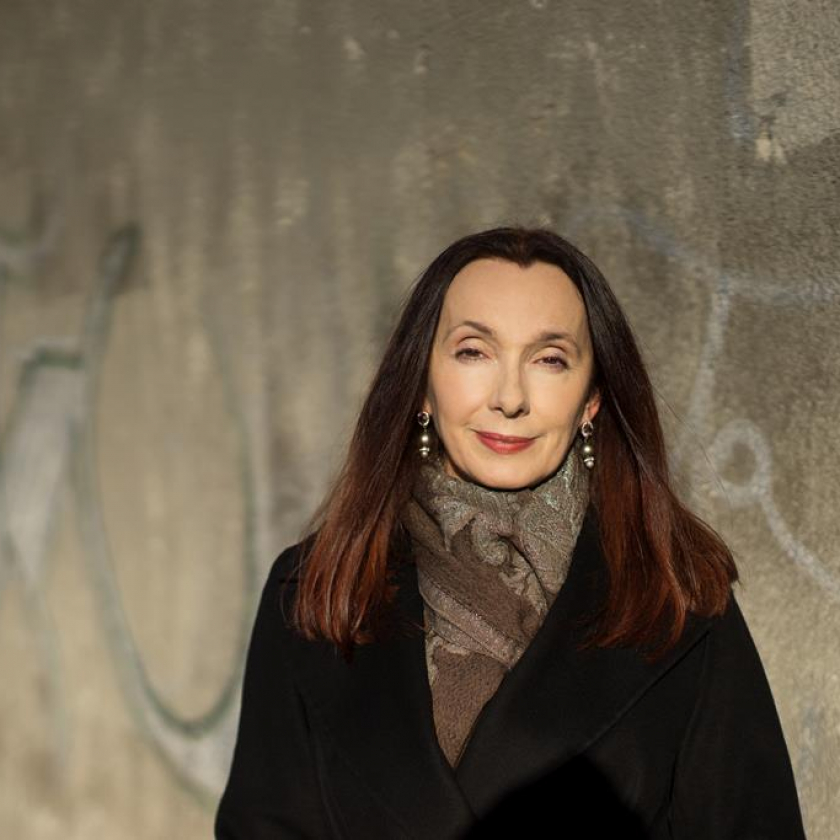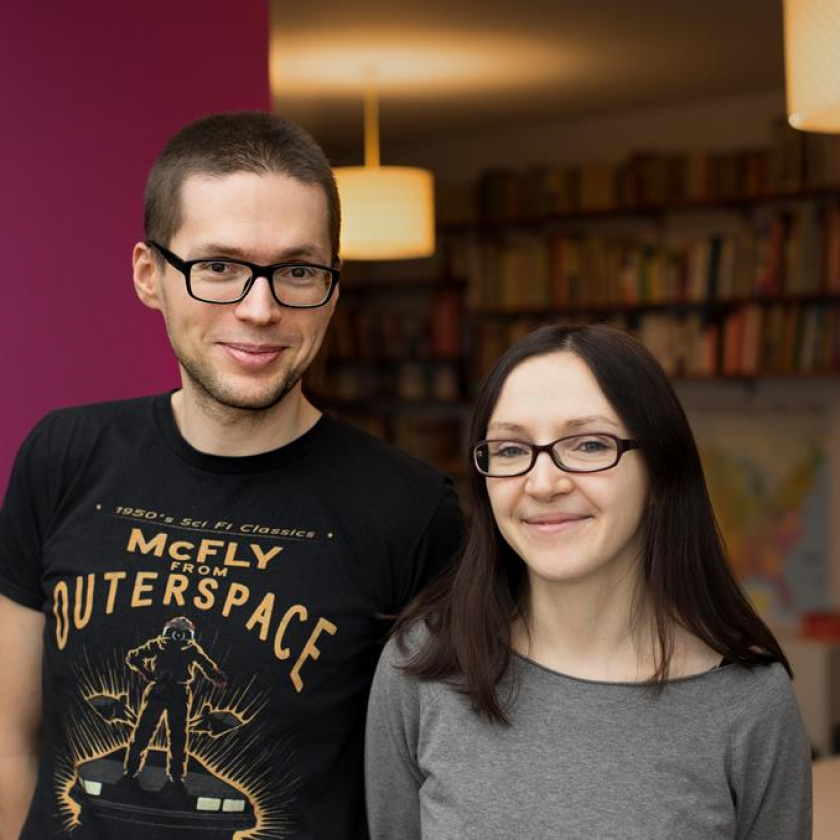Day 1 - Blog 1
Dzieńdobry! (Gen-dob-ree) I’m used to being a go-between. Having grown up between cultures, moving between Polish family/community and English school/society, it was an inevitable role. So here I am a British/Pole, a Polish poet writing in English about to enter the London Book Fair’s (LBF) Poland Market Focus cultural programme and share snippets of it with you. It feels a bit like my family are in town. Familiar, strange all at once. Personal. I’m not even going to pretend to be objective! I want to present them to you with immense pride, to win over non-Polish readers of this blog to Polish literature. But that’s not my job either! Polish literature is so exciting it doesn’t need my help. Although perhaps any literature from beyond the shores of this island needs help being promoted.
In the run up to LBF, I asked a handful of educated, book-loving, non-Polish friends to name me some Polish writers. Here were the responses:
‘I don’t know any.’
‘Konrad and Szymborska. Is that how you spell her name?’
‘Konrad? Was he Polish?’
‘That book you recommended Wioletta Somebody? Sorry I can’t remember her second name.’
‘Sorry.’
First up I’m at the seminar on New Poetic Universes in the Club Room, National Hall Gallery with: Moniza Alvi, Jacek Dehnel and Marzanna Kielar. The Chair: Sarah Hesketh from Modern Poetry in Translation magazine who reminds us it’s been 50 years since that journal began publishing the work of writers from behind the Iron Curtain.
What a treat to hear these poets reading. Jacek Dehnel starts and his poems speak to us of the ‘wordless river’ coursing beneath our lives, his poems cover subjects from David Bowie, dream lives, loss or gay online dating (‘I’ll sniff your socks’) with humour, depth and tenderness. Marzanna Kielar reads about transformation in our lives, of open water shrinking to grow solid, of ‘She the one inside me’ who clears the snow inside me, a knife without a handle’. Both Polish poets question boundaries, earth, water, ice, each touching on the ‘other’, the dream self, inside us.
Moniza Alvi beguiles with a powerful story-telling, a lightness of touch while tackling the hardest of subject matter: the rape of a young girl and an entire continent, the Partition of India, the destruction of the World Trade Centre and divisions which ensued when the ‘world split open’. Luckily the stone find its voice, ‘a small grinding sound like the clearing of a throat’. Her newest poems depict her parents as birds and talk also of the icy sea her family encounter arriving in England from Pakistan.
Sarah Hesketh asks Jacek Dehnel if he stands by what he said when he edited Arc’s 6 Polish Poets anthology that after 1989 Polish poets were let off the hook of ‘moral obligation’, once newspapers were able to print stories openly & there was no longer that need for poets to try and outwit the censor by smuggling messages in their poems about the totalitarian regime which had held Poland in its grip. Has the situation for poets changed again now with the dramatic changes not only in Poland but elsewhere?
For Jacek Dehnel the pressure is off while journalists and non-fiction writers are free to speak openly. For a number of poets speaking out publicly is separate from their poetry. He sees how deeply divided Polish society has become. To the audience’s consternation he mentions nationalist poets who are emerging and asks if there are poets here now too extolling the virtues of St George say!
For Marzanna Kielar the poet’s obligation is to ‘write the best they can’. She writes intuitively, starting with a handful of words, never knowing how her poem will develop, without a conscious purpose, working through discovery. For Moniza Alvi her engagement with political issues has always come about through family experience and stories. She had never dared touch a huge subject like Partition with a ‘barge pole’ before, lacking first-hand experience of it herself, but the discovery of silences in her own family about the disappearance of a young child in the time of Partition prompted her to write her book about it.
The poets talked of going into the unknown through the known, through hesitation or uncertainty. When the Poles were asked of their English language influences they showed a far-ranging knowledge of American, British, Scottish writers, from Bishop to Dunn, Hopkins and Larkin. They themselves have the best of translators into English. Kielar is translated by Elżbieta Wójcik Leese and Dehnel has Karen Kovacik translating his poetry and Antonia Lloyd Jones his prose. (That way they don’t fight over him, he told us, tongue in cheek.) Truly skilled, fine translators indeed who make it possible for non-Polish readers to get to know these authors.
As I write this I am in the English PEN sector. Behind me a discussion on the identity of Indian Literature – can you say there is there one such thing? The place is buzzing. People discussing, drinking coffee, writing on laptops, some (like me earlier) still wandering about clutching maps and trying to find the right stall or hall. I’m trying not to peak too early but the excitement is palpable.

Day 1 - Blog 2
When I’ve visited schools doing actvities (in the U.K) to teach children some Polish words, the Polish child/children beam at me. Something of their own in the classroom. I feel like that child now. So part of me wants to shout the Poles are here! At The London Book Fair! Mizielińscy, Tokarczuk, Winnicka are here. The other part is trying to navigate with my laptop through the vast, crowded spaces of Olympia and look cool. Cool not merely for the sake of it but as if to say: Polish writers well obviously, yes, of course. Polish literature is rich, diverse, complex. Its natural place is right at the centre of things.
After this mornings’s immersion in poetry and lunch wolfed down at full speed, it’s a relief for this word-smith (read word-obssessor) to be at event called: Do Books Travel: Is there a European Aesthetic? A panel of illustrators, publishers, graphic artists, Lisa Edwards, Sarah Fanelli, Marta Ignerszka, Aleksandra Mizielińska, Daniel Mizieliński, chaired with gusto by Duncan Partridge. Pictures clearly speak louder than words. The hall is packed.
What emerges is the story of a revolution, a shift towards greater acceptance of the immense importance of visual image, not only as illustration but in its own right. Publishers Lisa Edwards and Katarzyna Domańska point out the prejudices in the past which have formed a barrier to publishing picture books. Readers demanding instructions for reading a picture book with no text. The assumption that pictures aren’t grown up enough for older children.
Sara Fanelli talks of the difference the internet has made, a cross-pollination of ideas, creating an international discourse. On the other hand says Katarzyna Domańska it reduces diversity as everyone is copying everyone else. Daniel Mizieliński sees image as another tool to tell stories, he refuses to go along with the divisions of graphic novel versus picture book and all agree that images appeal to different ages at different levels. He talked about the importance of finding styles and representations that are different from the mainstream stock that children have access to through their schools. Marta Ignerska sees a gap in the market for teenage readers and the need to develop a visual language for them.
An audience member who researches picture books relates the shift in attitudes to picture books to changing perceptions of how we see children and what we think they can understand or ought to know about. Another audience member speaks of the importance of pictures for newly arrived children who are migrant. As humans we have been reading pictures for far longer than we have been reading text and pictures are much more accessible for all children. For newcomers especially they are essential visual cues for accessing a new culture and give us a platform for diversity. However certain images such as images of particular animals have cultural resonances which may be misinterpreted across cultures and this too is a challenge when designing picturebooks. We see certain animals in the heroic or evil role depending on where we come from.
Recently there has been an explosion of picture books about previously considered taboo subjects for children such as war, loss and death as the societal view of what children should have access to and learn about alters. The panel also welcomed a return to the so called large form retro book previously deemed the ‘wrong’ size for shelving!
Oscar Wilde famously said that he spent a whole morning putting a comma in and the afternoon taking it out! I thought it was just a handful of poets or translators who obsess about this kind of thing but the next event I’m at is so packed with crowds standing on all sides I only just manage to get a seat. Despite the noise of other events the audience hang on every word, or should I say, every comma!
It is the Translation Slam in the Literary Translation Centre with: Sean Bye and Marta Dziurosz. It’s chaired facetiously and hilariously by Daniel Hahn, who nevertheless teases out many serious points and admits that the differences in translation here are not because the translators are good or bad but because they are different people even trying to respect the original and drawing on all their knowledge and experience. The translators are braver than I would ever be, offering up two different versions of the same punchy text by Ewa Winnicka for scrutiny. The title of this text, as Marta Dziurosz reminds us, echoes back to that great Polish football victory in 1973.
It takes almost an hour to cover the title and opening sentences and of course the comma. What’s the difference between ‘happy’ and ‘contented’? Should you keep the flavor of the original supermarkets store’s name, or declutter the text of names that readers don’t relate to? What idiolect of our own do we favour when translating someone else's work? How do we preserve their tone of voice?
The translators defend their choices with insight, dignity and humility. They are simply wonderful.

Maria Jastrzębska is a Polish-born poet, editor and translator whose work features in the British Library project Between Two Worlds. Her most recent collections are At The Library of Memories (Waterloo Press) and The Cedars of Walpole Park, selected poems translated into Polish by Anna Błasiak, Paweł Gawroński and Wioletta Grzegorzewska (Stowarzyszenie Żywych Poetów). She co-edited Queer in Brighton (New Writing South). Her translations of Justyna Bargielska’s poetry, The Great Plan B, are forthcoming from SmokestackPress. www.mariajastrzebska.wordpress.com

photo by Lisa Kalloo
